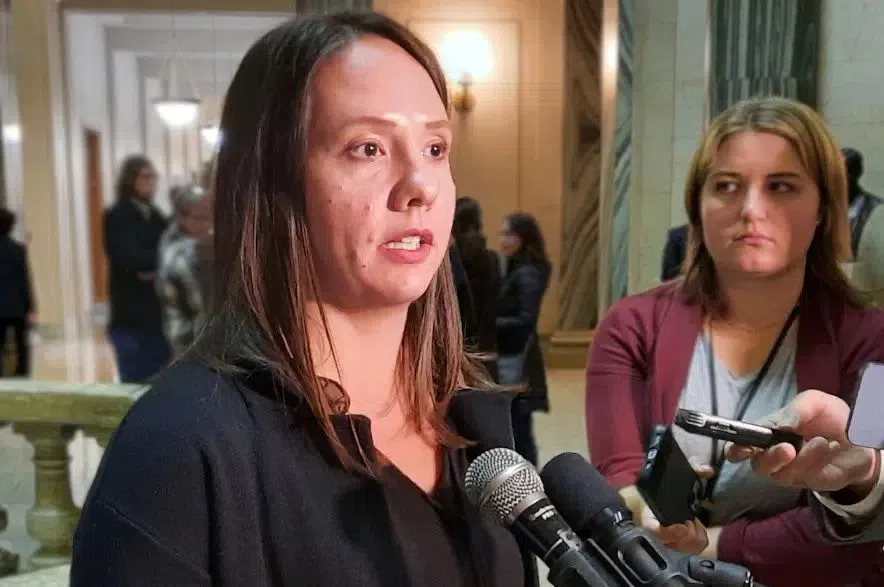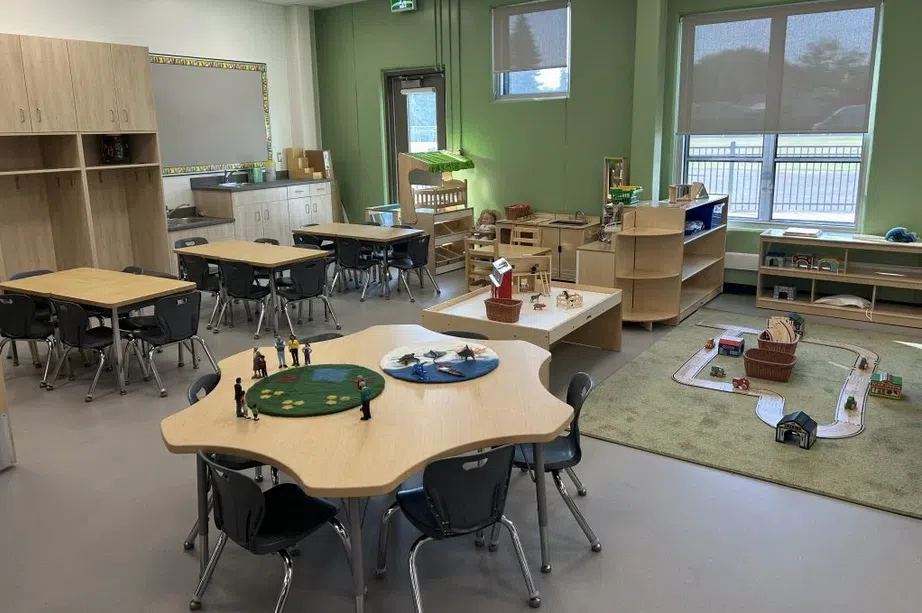Classroom complexity teachers have been in Saskatchewan’s schools for more than a month, but the union representing educators across the province says more help is still needed.
The new positions are intended to help tackle the challenges in Saskatchewan classrooms, offering targeted support in areas like math, reading and behavioural and mental health. The teachers are assigned based on the needs of the school as a whole, rather than a single classroom.
Read more:
- Sask. Polytechnic cuts 25 more jobs, NDP and faculty sound alarm
- Card, collectable show brings ‘all walks of people together’ in Regina
- Tariff worries pile on wildfires worries for Sask. forestry industry
While just over 500 classroom complexity teaching positions were allocated across the province, Saskatchewan Teachers’ Federation president Samantha Becotte said they haven’t all been filled yet.
During an appearance on The Evan Bray Show on Thursday, Becotte told guest host Tamara Cherry that recruiting teachers to different parts of the province is a challenge, but not one that’s unique to Saskatchewan. According to Becotte, teacher recruitment and retention issues are being felt across Canada.
Listen to the full interview with Becotte:
She said part of the issue relates to the constantly evolving standards teachers are expected to meet. Becotte said that while teachers come with a great set of baseline skills to support students, “we can’t expect teachers in classrooms to be everything.”
For Becotte, that’s especially true after what she described as a decade of chronic underfunding in Saskatchewan.

Saskatchewan Teachers’ Federation president Samantha Becotte speaks to reporters in Regina. (Lisa Schick/980 CJME)
Even though there’s been improvement in per-student funding in Saskatchewan over the last year, Becotte said the cumulative effects of the past 10 years have restricted the professional development opportunities that school divisions can provide for their teachers.
If teachers had access to more training, Becotte said they could learn how to better support students with mental health, speech and behavioural challenges.
Becotte said complexity discussions often centre around students who are struggling in school, but addressing the challenges in a class isn’t always about adding extra support. She said it’s also about ensuring the kids doing well in school get the right amount of attention.
“If we supported classrooms better, if we had better or more manageable class sizes, maybe a teacher would be able to provide some enrichment activities for those students,” Becotte said, explaining that students who are doing well in class can often struggle with boredom.
Even with the hundreds of new specialized positions, according to Becotte adding classroom complexity teachers is just “one step forward.”
The new teachers can’t “provide solutions to all of the challenges that exist in relation to classroom complexity,” Becotte said, saying the work still needs to happen to find the answers for issues in classrooms.











